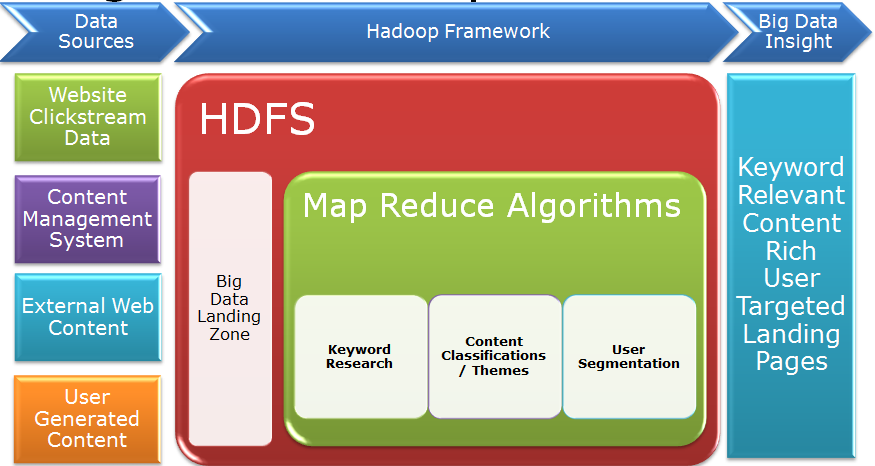Hadoop
Hadoop is an open-source software framework for storing data and running applications on clusters of commodity hardware. It provides massive storage for any kind of data, enormous processing power and the ability to handle virtually limitless concurrent tasks or jobs.

Why is Hadoop important?
Ability to store and process huge amounts of any kind of data, quickly. With data volumes and varieties constantly increasing, especially from social media and the Internet of Things (IoT), that’s a key consideration. Computing power. Hadoop’s distributed computing model processes big data fast. The more computing nodes you use, the more processing power you have. Fault tolerance. Data and application processing are protected against hardware failure. If a node goes down, jobs are automatically redirected to other nodes to make sure the distributed computing does not fail. Multiple copies of all data are stored automatically. Flexibility. Unlike traditional relational databases, you don’t have to preprocess data before storing it. You can store as much data as you want and decide how to use it later. That includes unstructured data like text, images and videos. Low cost. The open-source framework is free and uses commodity hardware to store large quantities of data. Scalability. You can easily grow your system to handle more data simply by adding nodes. Little administration is required.
What are the challenges of using Hadoop?
MapReduce programming is not a good match for all problems.
It’s good for simple information requests and problems that can be divided into independent units, but it’s not efficient for iterative and interactive analytic tasks. MapReduce is file-intensive. Because the nodes don’t intercommunicate except through sorts and shuffles, iterative algorithms require multiple map-shuffle/sort-reduce phases to complete. This creates multiple files between MapReduce phases and is inefficient for advanced analytic computing.
There’s a widely acknowledged talent gap.
It can be difficult to find entry-level programmers who have sufficient Java skills to be productive with MapReduce. That’s one reason distribution providers are racing to put relational (SQL) technology on top of Hadoop. It is much easier to find programmers with SQL skills than MapReduce skills. And, Hadoop administration seems part art and part science, requiring low-level knowledge of operating systems, hardware and Hadoop kernel settings.
Data security.
Another challenge centers around the fragmented data security issues, though new tools and technologies are surfacing. The Kerberos authentication protocol is a great step toward making Hadoop environments secure.
Full-fledged data management and governance.
Hadoop does not have easy-to-use, full-feature tools for data management, data cleansing, governance and metadata. Especially lacking are tools for data quality and standardization.
Commercial Hadoop distributions
Open-source software is created and maintained by a network of developers from around the world. It’s free to download, use and contribute to, though more and more commercial versions of Hadoop are becoming available (these are often called “distros.”) With distributions from software vendors, you pay for their version of the Hadoop framework and receive additional capabilities related to security, governance, SQL and management/administration consoles, as well as training, documentation and other services. Popular distros include Cloudera, Hortonworks, MapR, IBM BigInsights and PivotalHD.
